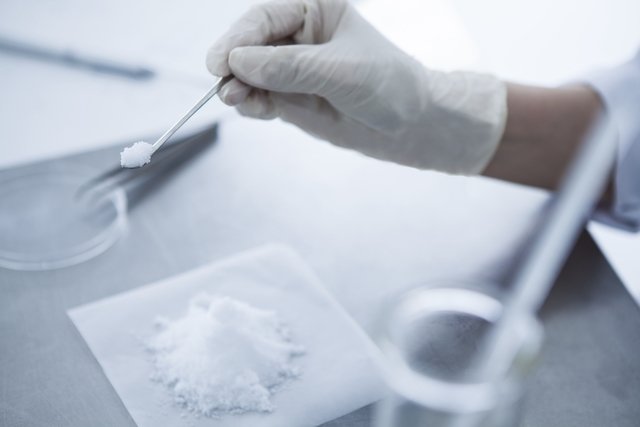Heroin is an illegal drug derived from morphine, obtained from opium extracted from the medicinal plant Papaver somniferum, also known as poppy, is produced in the form of brown or white powder, and is generally consumed by injection, because it is a way to obtain faster and more intense effects. However, some people also smoke or inhale the substance.
Heroin, also known as diacetylmorphine, is highly fat-soluble, crossing the membranes in the brain within a few minutes after use, quickly causing effects such as intense euphoria and a feeling of well-being, which leads to continued use to obtain these effects and addiction. .
However, despite the euphoria it causes, in addition to other effects that lead some people to consume this drug, heroin can cause very serious side effects, dependence, withdrawal syndrome and, in some cases, death.

What are the effects of heroin
The immediate effects of heroin are a feeling of euphoria and well-being, relief from pain and anxiety and a feeling of calm and tranquility, followed by other effects such as drowsiness and slow thoughts and movements.
These effects occur approximately 1 to 10 minutes after use, depending on the route of administration used, since heroin is able to quickly cross the brain membranes after being absorbed, exerting its intense euphoric effect.
Generally, the immediate effects of heroin are accompanied by unpleasant effects, such as nausea, vomiting, itching on the body, dry mouth and a feeling of heaviness in the arms and legs.
Risks of heroin use
Heroin is a highly addictive drug that can cause serious health risks, such as decreased mental function, cognitive capacity and breathing rhythm, respiratory depression, decreased blood pressure and pulse rate, respiratory paralysis or even cardiac arrest.
Additionally, depending on the route by which the drug is administered, the following may occur:
- Injected: inflammation in the veins, increased risk of infections, such as HIV, if syringe is shared, risk of overdose in consumers who use the drug occasionally or in drug addicts after a period of weaning;
- Aspirated: injuries to the nasal mucosa and infectious diseases if the person shares the inhalation material;
- smoke: lesions in the bronchi and lungs.
Furthermore, a few hours after consuming the drug, the person feels the need to consume heroin again, to avoid withdrawal syndrome. This syndrome is popularly known as a hangover, in which symptoms such as nausea, vomiting, sweating, cold chills, muscle spasms, body aches, difficulty sleeping, anxiety, tearing and dripping nose appear, which can cause a lot of discomfort, leading to the person to consume it again, to feel better.
Heroin overdose
Another risk of heroin is overdose, which occurs when it is used in large quantities, as this drug can cause tolerance, which is when the person needs increasingly larger doses to obtain the desired effect.
Heroin overdose can cause symptoms such as:
- Extreme drowsiness;
- Lethargy;
- Mental confusion;
- Uncontrolled vomiting;
- Shallow breathing or difficulty breathing;
- Panting;
- Noises when breathing;;
- Low pressure;
- Weak pulse;
- Constricted pupils;
- Pale, cold or clammy skin;
- Bluish lips, nails and fingertips;
- Loss of consciousness;
- Seizures;
- Coma;
- Respiratory depression;
- Respiratory failure;
- Cardiac arrest.
It is important that a person with a heroin overdose is treated immediately in a hospital as it can cause death.
Therefore, when detecting the symptoms of a person with an overdose, they must be taken to the emergency room immediately so that treatment can begin, which is generally done with naloxone and measures to restore oxygenation to the blood and organs, such as use of a ventilation mask, in addition to intravenous serum, monitoring of vital signs, and cardiac massage, in the case of cardiac arrest. See how cardiac massage is done.
What are the consequences of using heroin?
If consumed daily, heroin can cause serious adverse effects, such as lethargy, depression, sexual dysfunction, physical and social degradation, dermatological disorders, tolerance and physical and psychological dependence.
Heroin dependence can begin within a few weeks if consumed regularly. Find out what treatment to stop using drugs involves.



